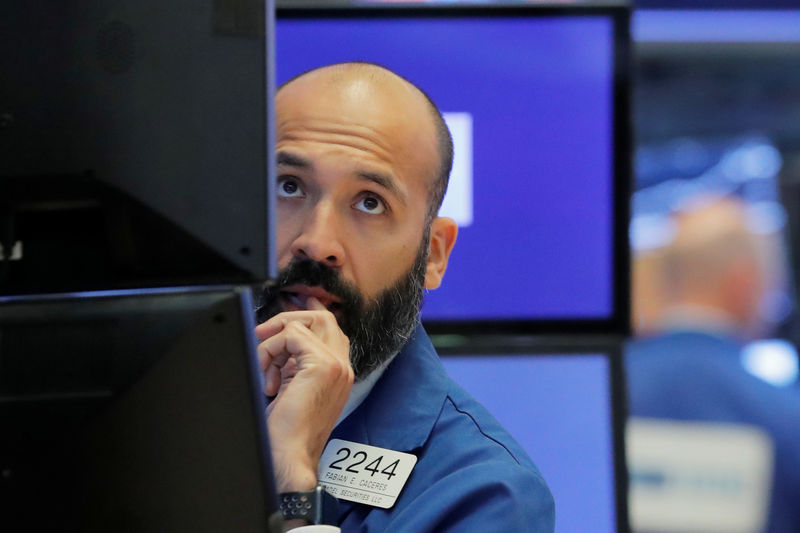Street Calls of the Week
The ASX is likely to lift in trading today after taking an unexpected dip of 0.22% yesterday, setting a new 50-day low.
ASX Futures were up 47 points or 0.7% overnight, as US and European share markets also gained.
Yesterday, US economic data pointed to a decline in consumer inflation expectations, falling from 4.1% in May to 3.8% in June, the lowest levels in two years.
The US subsequently reversed a three-day slump but investors were still cautious, waiting on Wednesday’s consumer prices report and second-quarter earnings later this week to judge whether price pressures are easing.
More on that in a moment.
Market movement was also subdued due to comments by the Federal Reserve, which pointed to additional interest rate hikes on the horizon as inflation is still too high.
On a more positive note, comments by US Treasury secretary Janet Yellen on “direct” and “productive” meetings with senior Chinese officials bumped chip stocks Intel (NASDAQ:INTC) and Qualcomm (NASDAQ:QCOM) up 2.8%.
The day also saw a surge in Icahn Enterprises shares by 20.2% after the investment firm revealed that Carl Icahn and various banks had finalised revised loan agreements.
Megacap tech stocks reversed some of their recent gains overnight with Tesla (NASDAQ:TSLA) falling 1.8% and Amazon (NASDAQ:AMZN) dipping 2% the day before its Prime Sales event went live.
Overall, the Dow Jones rose 0.6%, the S&P500 gained 0.2% and the Nasdaq notched 0.2%.
European markets had steady gains yesterday, climbing back from earlier losses. Travel and leisure stocks gained 1.3% but utilities and real estate fell 0.7% each.
Bayer (ETR:BAYGN), the German pharmaceutical and chemicals conglomerate, enjoyed a 1.6% increase in share value following speculation that its CropScience unit could potentially be spun off and listed separately.
The FTSE300 and UK FTSE100 both gained 0.2%, while Bank of England Governor Andrew Bailey said the central bank would need to "see the job through" on squashing Britain’s inflation rate.
Markets forecast heightened volatility for Q2
Earnings reports from companies like BlackRock (NYSE:BLK), JPMorgan Chase (NYSE:JPM), Wells Fargo (NYSE:WFC) and Citi are likely to emerge in a period of “heightened volatility” for the US share markets this financial year, says deVere Group CEO Nigel Green.
They’ll be followed the next week by Tesla, Netflix (NASDAQ:NFLX), IBM (NYSE:IBM), Bank of America (NYSE:BAC), Goldman Sachs (NYSE:GS), Morgan Stanley (NYSE:MS), Johnson & Johnson and United Airlines, among many others.
“Markets are bracing for what could be the worst reporting season since the end of the pandemic,” Green explained.
“In the last quarterly earnings, there was a lot of negative guidance from companies. We’re likely to see this having turned out to be correct amid the brewing of a perfect storm of several major economic headwinds.
“These include the persisting challenge of inflation, meaning central banks will need to continue with, or resume, interest rate rises to bring inflation back to target; and that developed markets will experience the lag effect of monetary policy tightening during the second half of 2023.
“As companies’ costs exceed their sales, as is currently the case for many corporates, earnings take a hit.”
Green points to forecasts of “less than stellar” earnings for the second quarter of this financial year for his dour outlook, citing analysts who believe it may be the worst quarter since Q2 2020.
“We expect a bout of heightened market volatility as investors assess the health of corporate America,” he said, “Guidance will be critical as indicators show the economy is headed for a downturn and investors will be eager to know which companies are best-positioned to manage this.
“Guidance helps evaluate a company’s past performance in light of its future prospects.”
Green emphasises that investors should be scrutinising a company and sector’s ability to maintain margins within an environment of rising costs.
“Investors should be paying close attention to margin because it can indicate how well a company is managing costs and competing in its industry,” he said.
“It can also impact a corporation’s ability to invest in growth opportunities or pay dividends to shareholders.”
Previously, he has suggested that these include energy, healthcare, luxury goods and agriculture.
“We'll look at energy because there’s already a shortage of energy in the world right now,” he pointed out.
“Healthcare is a robust sector as people will always need to stay healthy – this has come into focus more than ever since the pandemic.
“Also, despite wider market volatility, there’s strong earnings potential due to ageing populations and other demographic changes. Plus, healthcare is becoming increasingly tech-driven, which offers fresh opportunities.”
“Luxury goods can maintain margin due to the inherent aspirational ‘elite and exclusive’ aspect of the sector.
“Agriculture is another one as populations in emerging markets around the world are eating more meat. As they eat more meat, there needs to be more grain produced.”
“The earnings reports are a critical test for the stock market rally. Investors should buckle up.”
Currency and commodities
Currencies performed strongly against the US dollar in overnight trading.
The Euro rose to session highs of US$1.1000, the Australian dollar strengthened to US$0.6679 cents and the Japanese yen firmed to JPY141.27.
Global oil prices fell slightly by 1% due to the increasing likelihood of further US interest rate hikes but were somewhat cushioned by crude supply cuts from leading exporters Saudi Arabia and Russia.
The Brent crude price fell by US$0.78 or 1% to US$77.69 a barrel. The US Nymex crude price slid US$0.87 or 1.2% to US$72.99 a barrel.
The base metal market saw modest gains on the back of a weaker US dollar (copper up 0.1% and aluminium 0.2%), while gold futures prices fell marginally by US$1.50 to US$1,931.00 an ounce.
Finally, iron ore futures prices dropped 1.2% to US$109.21 a tonne in the face of lacklustre Chinese inflation data and slowing demand from the world's largest importer of the commodity.
